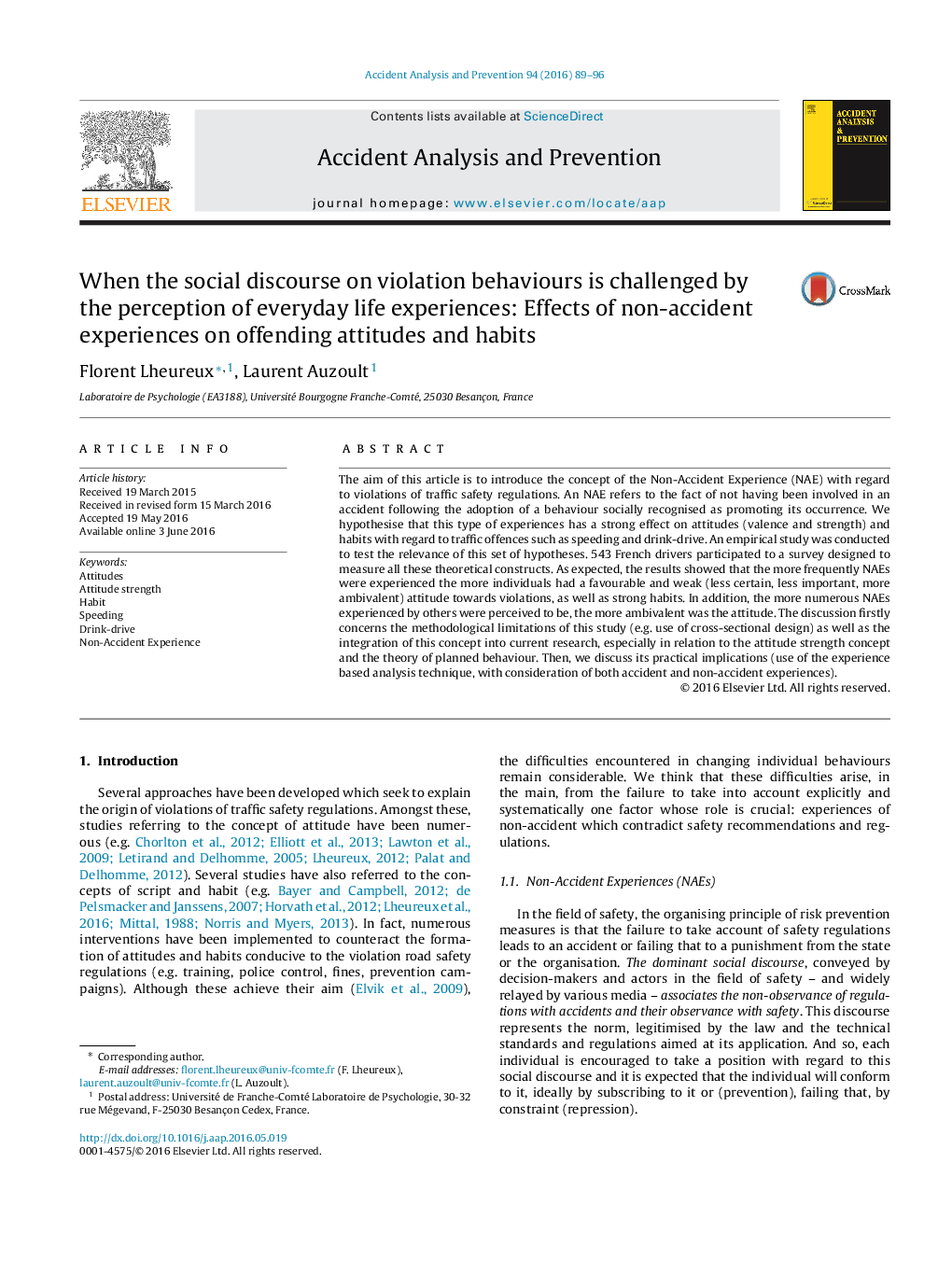| کد مقاله | کد نشریه | سال انتشار | مقاله انگلیسی | نسخه تمام متن |
|---|---|---|---|---|
| 572010 | 1452903 | 2016 | 8 صفحه PDF | دانلود رایگان |
• Introduce the concept of Non-Accident Experiences (NAEs).
• Effects of personal and vicarious experiences are both investigated.
• Personal NAEs are associated with offending attitudes and habits.
• Vicarious NAEs are associated with more ambivalent offending attitudes.
• These effects are significant when controlling for accident experiences.
The aim of this article is to introduce the concept of the Non-Accident Experience (NAE) with regard to violations of traffic safety regulations. An NAE refers to the fact of not having been involved in an accident following the adoption of a behaviour socially recognised as promoting its occurrence. We hypothesise that this type of experiences has a strong effect on attitudes (valence and strength) and habits with regard to traffic offences such as speeding and drink-drive. An empirical study was conducted to test the relevance of this set of hypotheses. 543 French drivers participated to a survey designed to measure all these theoretical constructs. As expected, the results showed that the more frequently NAEs were experienced the more individuals had a favourable and weak (less certain, less important, more ambivalent) attitude towards violations, as well as strong habits. In addition, the more numerous NAEs experienced by others were perceived to be, the more ambivalent was the attitude. The discussion firstly concerns the methodological limitations of this study (e.g. use of cross-sectional design) as well as the integration of this concept into current research, especially in relation to the attitude strength concept and the theory of planned behaviour. Then, we discuss its practical implications (use of the experience based analysis technique, with consideration of both accident and non-accident experiences).
Journal: Accident Analysis & Prevention - Volume 94, September 2016, Pages 89–96
